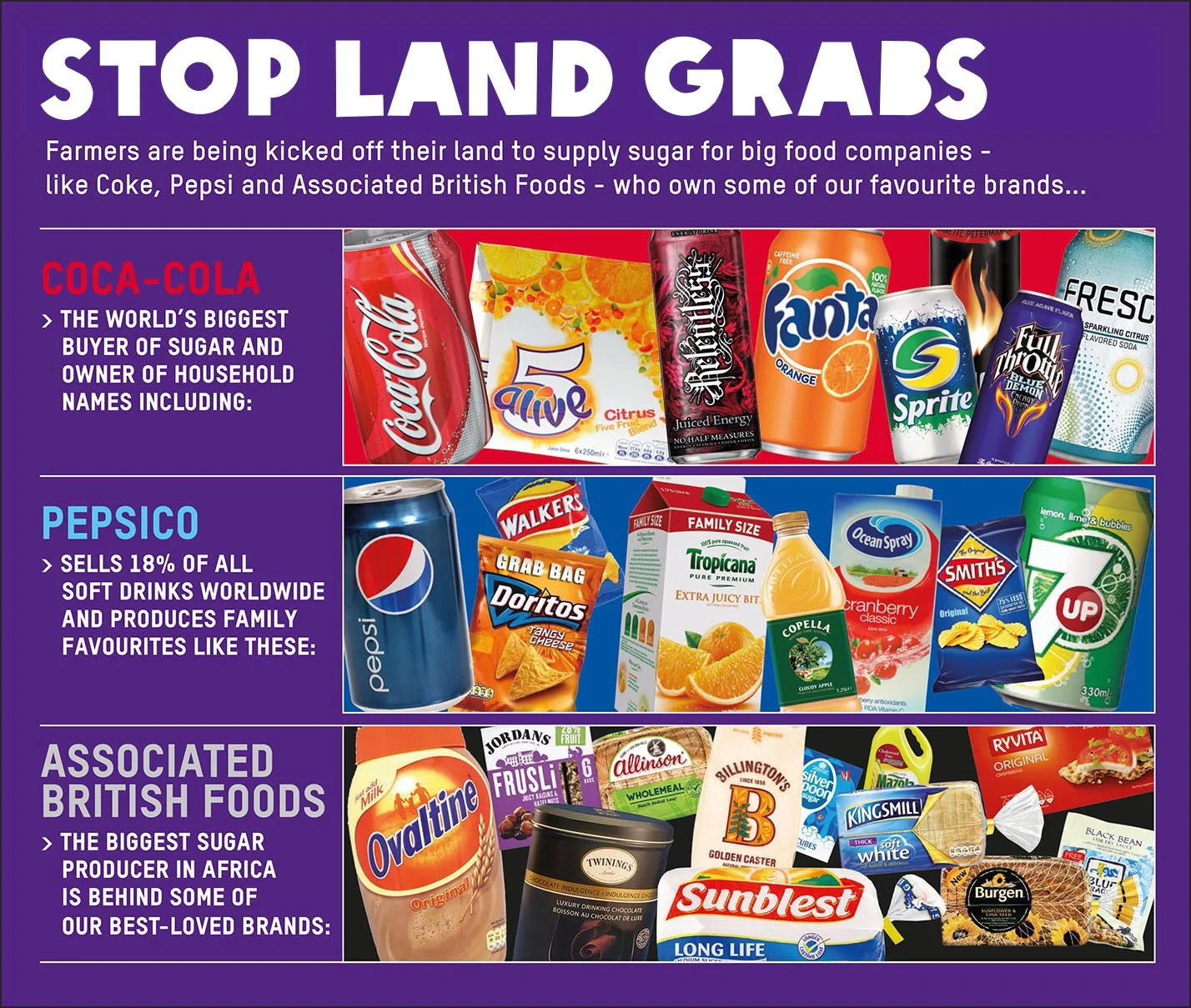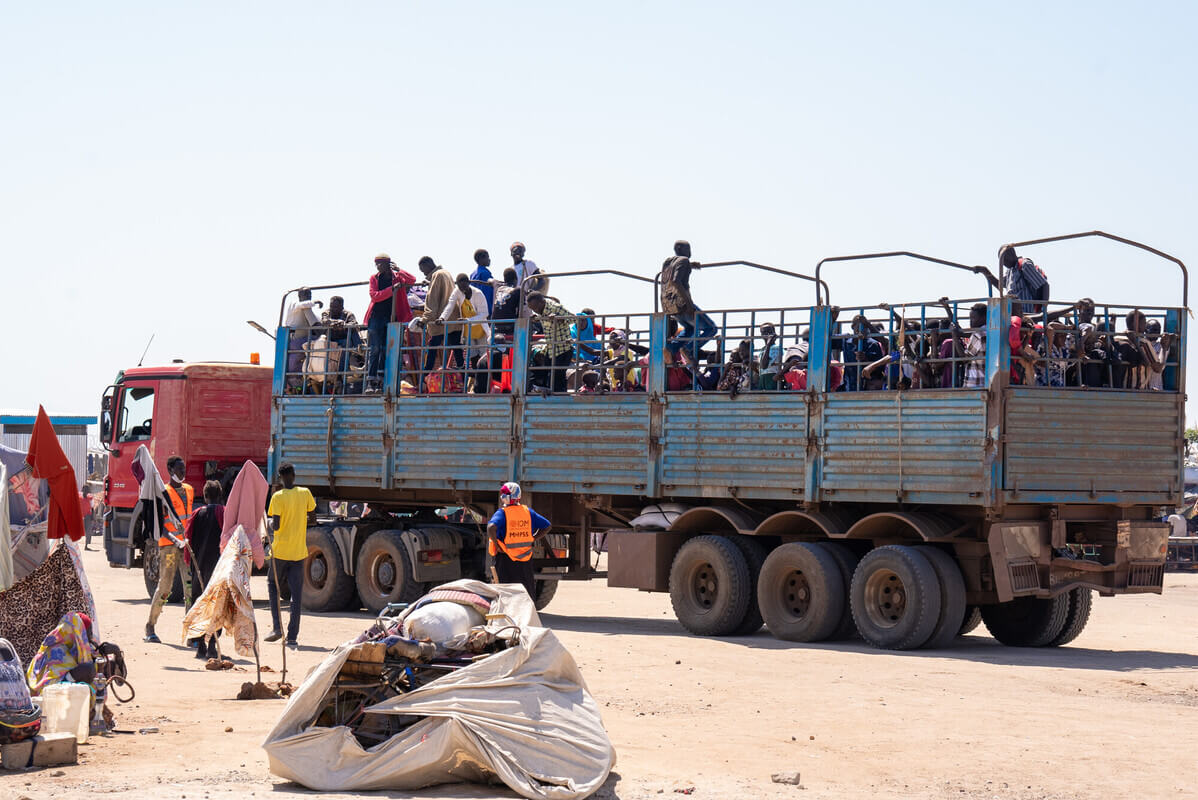Coca-Cola, PepsiCo and Associated British Foods (ABF) have had varied reactions to Oxfam’s new report exposing land grabs and conflicts in their sugar supply chains, and their need to strengthen their policies as a result.
ABF came back fighting. It says it has always been scrupulous in its approach to land ownership; that Oxfam’s call for them to commit to zero tolerance of land grabs would be a “cheap” gesture; and that the true test of an organisation is what it does and not simply what it says. We agree! Actions do speak louder than words. That’s exactly why we’re asking ABF to strengthen its systems, in order to ensure that its operations and those of its suppliers don’t lead to land grabs and conflicts. On the evidence we’ve seen its policies remain weak. The company scored just 1 out of 10 in our assessment of its policies on land and while the company is right to say Oxfam has not highlighted any verified cases of land grabs linked to ABF or its subsidiaries, there are enough reports of problems to suggest that ABF is not being transparent and that things are not entirely OK with it’s supply chain.
Coca-Cola says that it has policies in place to deal with the issues we have raised and that they are working with Oxfam to address them. Unfortunately we have to disagree on both points. The company scored just 2 out of 10 in a recent assessment of its land policies – it’s clear it needs to do much more to get its house in order. While we’d be delighted to work with Coca-Cola to help them deliver on this, we have yet to get to this point with any of the companies. Our door is always open.
PepsiCo says it takes any problems raised about its suppliers seriously and reassures us that they are in compliance with all the applicable laws. It’s good to hear that the company has raised this issue with its suppliers but PepsiCo appears to have missed the point. This issue isn’t just about whether the relevant laws are being respected – although in some of the cases we have highlighted, they are clearly not – this is about the companies ensuring that they and their suppliers do the right thing on land regardless. A company cannot hide behind a poor national law. In keeping with the UN Guiding Principles on Human Rights, it must maintain a high common standard everywhere – most especially in countries where governance is weak. PepsiCo also needs to act to ensure it has stronger policies in place to prevent land conflicts in its supply chain. Its current policies on land are simply not up to the job – they also scored just 2 out of 10 in our Behind the Brands scorecard.
The bottom line is that none of these companies are doing enough to tackle land grabs. Oxfam and the millions of people who enjoy their products expect better. We look forward to hearing more from them in the coming weeks.
In the meantime you can join the campaign and make your feelings heard right now on our website.
It’s time to put a stop to land grabs. Join the campaign now.




